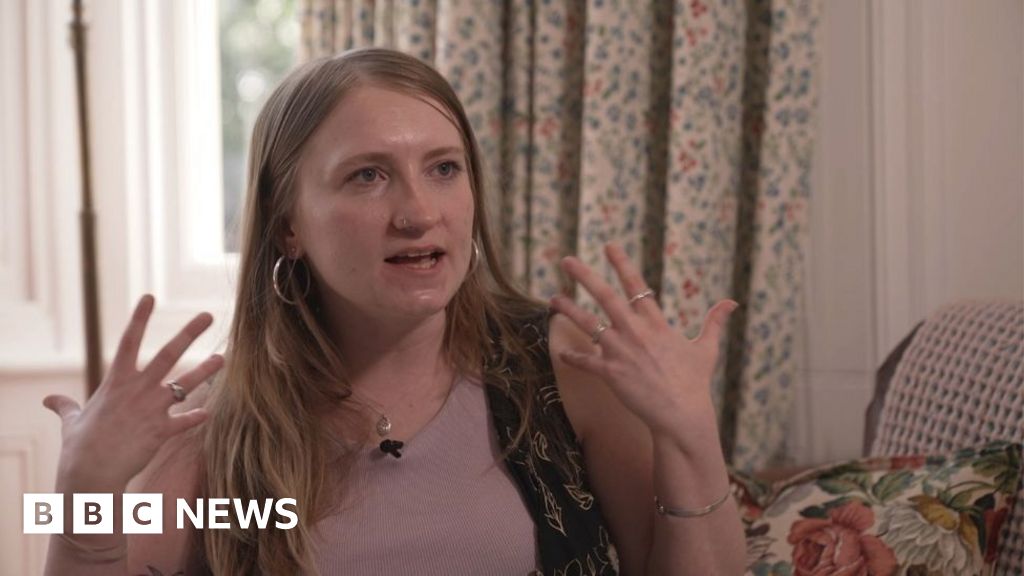ARTICLE AD BOX
Image source, Andy Parrett/Geograph
Image caption,The trust has been given a deadline to improve services or face enforcement action by the CQC
An NHS mental health trust that has been the worst performing in England has been warned it must improve after failing another inspection.
Norfolk and Suffolk NHS Foundation Trust (NSFT) has been rated "inadequate" in the latest Care Quality Commission (CQC) report.
The CQC said it had served the trust with a warning notice that it had to act on to improve patient care.
NSFT chief executive officer Stuart Richardson said he was "deeply sorry".
The trust has been rated "inadequate" on three previous occasions by the health watchdog, as well as being the only one currently within the NHS's improvement regime for not meeting standards.
Following the latest inspection, its overall rating was downgraded from "requires improvement" - and three out of five measures assessed by the CQC, for safety, leadership and effectiveness, met its lowest grading.
Services for people with autism and learning difficulties were rated "good".
The report said two wards were immediately closed to new patients following a CQC visit in November, after the trust was threatened with enforcement action if urgent measures were not taken.
Significant staffing problems, including an annual nurse vacancy rate of more than 17%, were also highlighted.
Staff at an adult long stay ward did not complete regular checks on patients supposed to happen every 30 to 60 minutes, which meant they were unaware if somebody needed help for periods of up to seven hours.
Inspectors also said there had been a severe deterioration on the trust's inpatient ward for children and young people - the Dragonfly Unit in Carlton Colville, Suffolk.
They found it was reliant on agency workers and lacked a permanent doctor.
'Potentially avoidable' deaths
Craig Howarth, CQC head of inspection for mental health and community services, said: "Due to our findings, we have served the trust a warning notice so its leaders are clear about what must be done to improve patient care and safety.
"They have a legal obligation to deliver this."
The notice requires improvements in a number of areas, including maintaining safe staffing levels.
- 115 "unexpected or potentially avoidable" deaths reported over a two-year period
- 15 people in contact with trust services were "thought likely" to have taken their own lives in the previous three months
- The long stay unit for adults had one consultant psychiatrist working half a day per week when patient reviews took place, and a locum junior doctor was shared between this service and another
- A patient's carer shared concerns about illegal substances on a ward and staff not always taking appropriate action
Within children and adolescent community services, the CQC also highlighted a huge rise in referrals - from 95 in August 2020 to 2,547 in July 2021.
'I tried to make things better'
Sheila Preston said she quit from her role as governor after being frustrated by the culture at the trust
Sheila Preston was a governor at the trust when her son Leo, who suffered from a serious mental illness, took his own life.
She was determined to make a difference, but after serving a full term of nine years she had become highly critical at the way the trust had been led.
"They have completely failed in their responsibility to the public," she said.
"There doesn't seem to be any accountability when things have been going really wrong.
"I think things have got worse in all respects.
"Unfortunately, I cannot change the fact that I'm angry and I spent a lot of time trying to make things better. I failed."
The Norfolk and Suffolk NHS Foundation Trust has an annual budget of £305m and employs 4,227 staff.
In early 2015 it became the first NHS mental health provider to be placed in special measures, which includes a regime of intensive support, and staff from another trust were brought in to supplement the leadership team.
One of these managers, Mason Fitzgerald, was due to take up the role of chief executive but stepped down and was later sacked after the BBC revealed he had false qualifications on official documents.
Analysis by Nikki Fox, Health Correspondent, BBC Look East
Transforming a failing trust can't be done overnight. But campaigners say while they're told it's a marathon not a sprint, many don't make it to the end of that journey.
Things started going wrong in 2013, when the trust oversaw a so-called "radical redesign".
A total of 136 beds were cut and a large number of experienced staff were lost following a 20% cut to its budget over four years.
Staffing shortages have persisted since, and the trust has found it difficult to recruit specialist mental health nurses and consultants.
It's meant it's largely become a crisis management service where people are helped in an emergency but quickly end up back in the service as they wait too long to have their underlying condition treated in the community, because staff are overwhelmed.
But staffing shortages are a nationwide problem, so why is this mental health provider the only one in the NHS's recovery support programme?
Norfolk has the highest number of referrals for young people in the country and a high elderly population, so demand in those age groups is significant.
But management instability has also meant ineffective leadership, with eight chief executives in 10 years. It's the oversight to bring in staff with the right skills, join services together and learn from mistakes that appears to be lacking.
NSFT has already had an improvement director and managers seconded from another trust in East London, but some services are getting worse not better.
There isn't much left to try.
'Deeply sorry'
Stuart Richardson, chief executive officer at NSFT, said: "The people of Norfolk and Suffolk deserve good quality mental health services and we are committed to achieving this.
"We recognise that we have not made the expected progress in some key areas, and I am deeply sorry for this and the impact this will have had on people who need support with their mental health.
"We have already taken action that will help us improve, including increasing support and training for our staff, redoubling our efforts to recruit more nurses and doctors, and bringing services closer to people's homes through our community transformation projects."
Trust chair Zoe Billingham said NSFT had made some improvements.
"We now have a leadership team with clear and ambitious plans, and changes in how we work across the health and care system means we have an opportunity to provide mental health services differently," she said.
"We are determined to make the required changes with pace and focus."
Find BBC News: East of England on Facebook, Instagram and Twitter. If you have a story suggestion email eastofenglandnews@bbc.co.uk

 3 years ago
50
3 years ago
50








 English (US) ·
English (US) ·